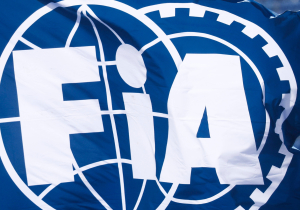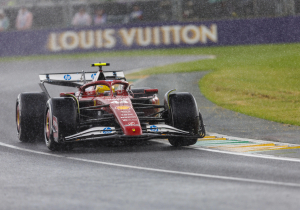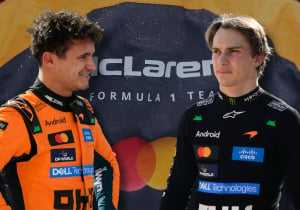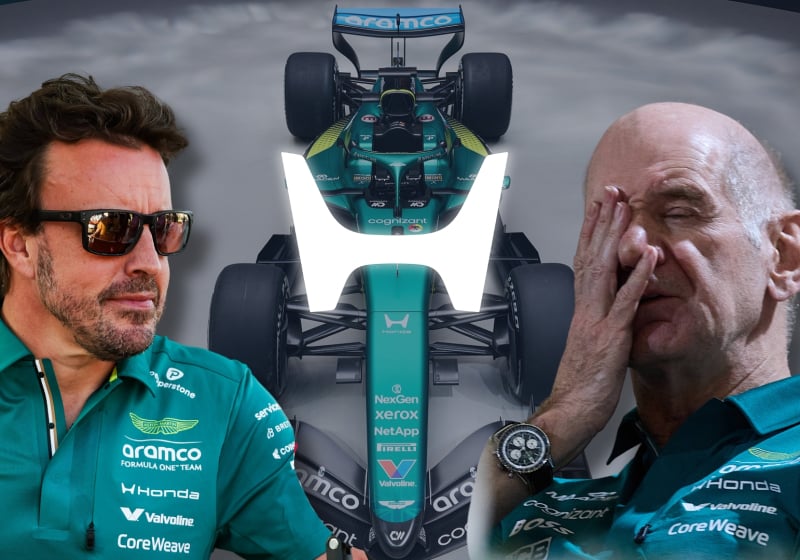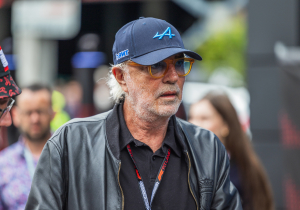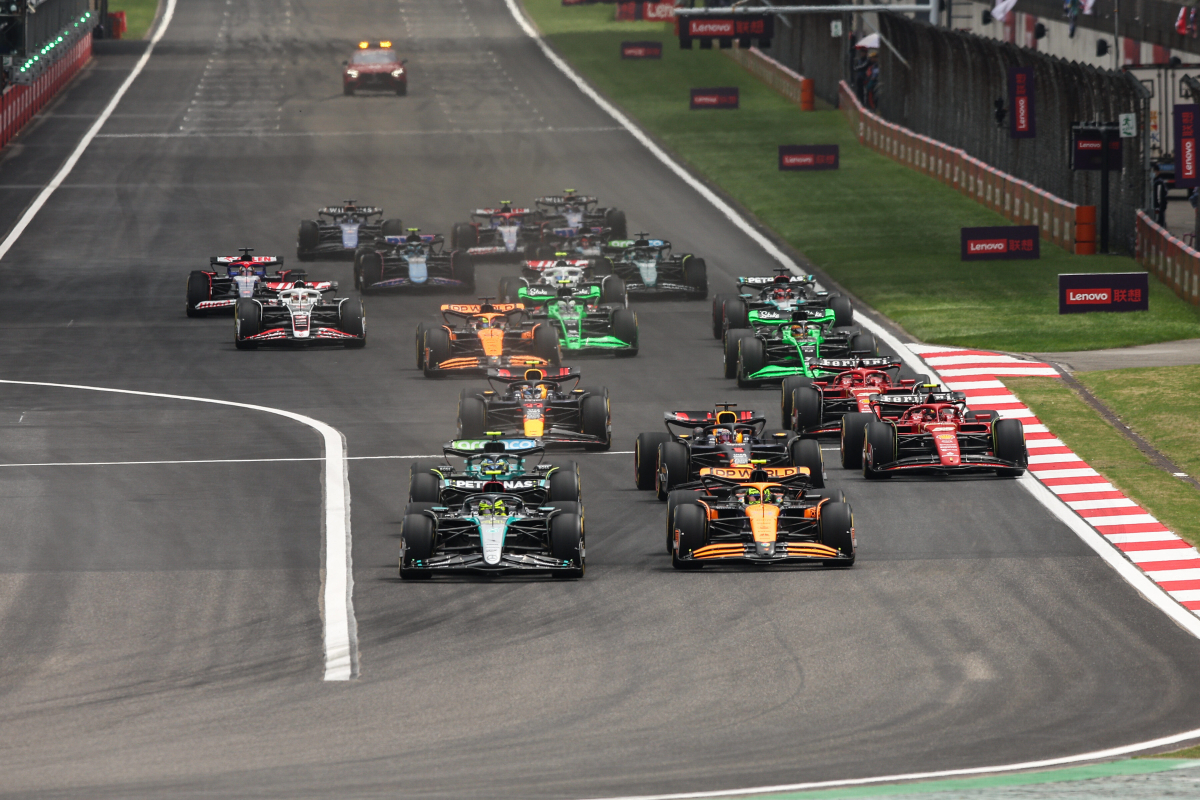
The MAJOR race change that could decide world championship


Change your timezone:
The MAJOR race change that could decide world championship
Sprint races have been in the sport since 2021

Comments from F1 CEO Stefano Domenicali earlier this week may have given some drivers quite a fright while they are on their summer breaks.
Domenicali revealed in an interview on The Race podcast that certain tweaks could be made to the current sprint race format.
The sprint race weekend was introduced to the F1 calendar in 2021, where three events at Silverstone, Monza and Interlagos were initially trialled.
Originally, the format hosted qualifying on Friday which set the grid for the sprint and the result of the sprint race established the grid for Sunday’s grand prix. Points were only awarded to the top three finishers, three for the winner down to one point for third.
However, in 2023 the format changed with eight points for the winner, descending to one for P8, with a separate sprint qualifying established and Sunday’s grid was determined by traditional qualifying.
Domenicali has now said that there could soon be more than the six sprint race weekends that have been on the calendar in 2024 and 2025, which could have a major bearing on the direction of future world championships.
Not only this, but the F1 CEO has also suggested that reverse grid order could be used for sprint races in the future, in a similar style to junior formulas F2 and F3. Exciting for us fans, but surely a step too far in terms of altering the skills required to win a world championship.
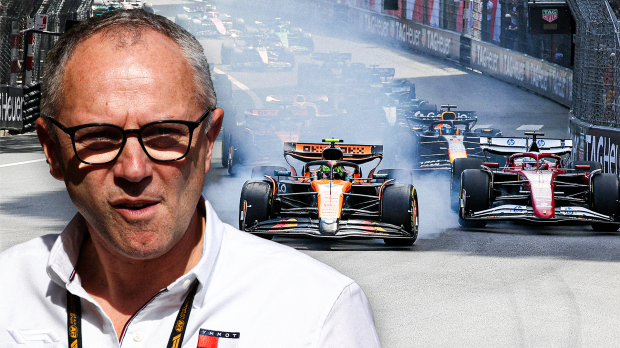
Why sprint race reverse grids would not work in F1
How F2 sprint races work is that whoever qualifies first will start 10th for the sprint race, before taking up their pole position for the feature race the day after. So, in the sprint you will have the pole sitter in 10th, the person who qualified in second starting ninth and so on, with the driver who qualified 10th starting on pole. The rest of the grid remains the same.
It's a change that has been called for before in F1, with George Russell one driver who has suggested in the past that it could be a good way to shake things up.
While it does allow more drivers to experience the feeling of starting a race from pole, and ultimately leads to more race winners, in F1 it is notoriously more difficult to overtake than in the junior formulas.
This would likely mean that good qualifiers - like Charles Leclerc or Russell himself - would be punished for the sprint races, and miss out on a healthy chunk of points simply because they qualified in second but got stuck in a DRS train in the midfield.
It would also hugely benefit somebody like Max Verstappen. The Dutchman is known for his elbows-out approach, and his ability to carve overtaking opportunities out of nowhere.
You could argue that this is a good thing because he is a four-time world champion, and we would get to see the best of his overtaking abilities during sprint races, but it would lead to a complete change in the skills required from other drivers to be able to compete in the championship, particularly if the number of sprint events is increased.
Do we really want to be celebrating mediocrity by allowing somebody who qualified in 10th to start an F1 race from pole position?
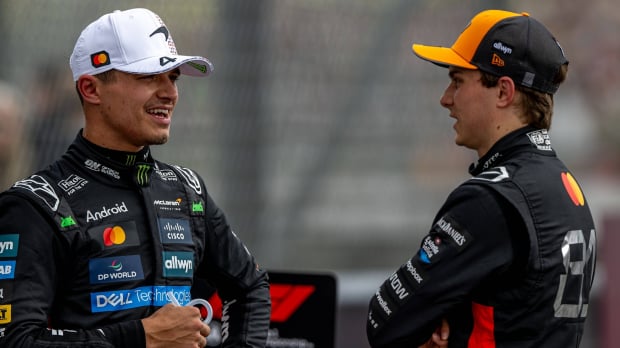
Why F1 should not add more sprints to the calendar
This point about drivers needing to completely change their driving style in order to compete in the championship would be accentuated by there being even more sprint weekends on the calendar.
Currently, drivers are handed eight points for a race win, and across six sprint weekends that means that there is a maximum of an extra 48 points on offer throughout the season.
Should Domenicali opt to increase that to, let's say nine, then that number of points available would be like adding an extra three grands prix to the schedule.
This could have huge implications for future world championship battles, particularly closely-fought title battles like the current one we are witnessing between McLaren stars Lando Norris and Oscar Piastri.
Of course, F1 could choose to increase the number of sprint events but reduce the number of points that they offer for a sprint race win.
While this could be an adequate solution, it would not address concerns about adding races to what is already a jam-packed F1 schedule, and that in itself could lead to burn out and diminishing interest among F1 fans.
READ MORE: F1 drivers height: How tall are Hamilton, Verstappen and Tsunoda
READ MORE: F1 drivers age: How old are Lewis Hamilton, Verstappen, Norris and co?
F1 HEADLINES: Hamilton finds surprise Ferrari backing as Horner comes under fire
READ MORE: Horner mercilessly trolled online after Max Verstappen admission

Related
More F1 news
Latest F1 news
Recommended by the editors
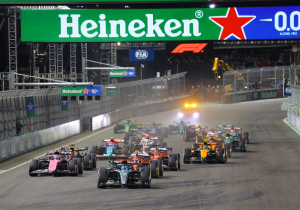 F1 Explained
F1 Explained
F1 start procedure explained - why is it so controversial in 2026?
 F1 Explained
F1 Explained
F1 Explained: What is sandbagging?
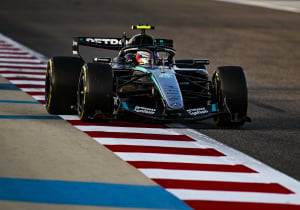 F1 2026
F1 2026
F1 2026 Regulations: What is lift and coast?
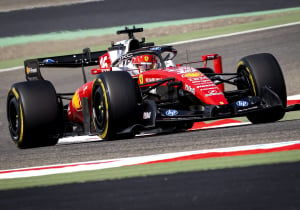 F1 Explained
F1 Explained
F1 2026 Regulations: What are the new mirror hazard lights?

Change your timezone:
Latest News

F1 Practice Today: Australian Grand Prix 2026 start times, schedule, TV channel and live stream
- 45 minutes ago

F1 loophole sees FIA penalty reversed at Australian Grand Prix
- 1 hour ago

Who are the FIA stewards at the F1 Australian Grand Prix?
- 3 hours ago

F1 2026 Australian Grand Prix weather forecast - latest from Melbourne
- Today 14:55

McLaren F1 2026 Preview: Lando Norris and Oscar Piastri hit breaking point
- Today 13:27

F1 Explained: What is the 107% rule? Will it impact Aston Martin at Australian Grand Prix?
- Today 13:25
Most read

F1 News Today: Adrian Newey in firing line as Aston Martin may deliberately DNF
- 3 march

Aston Martin set to DNF at Australian Grand Prix as Alonso and Stroll fear nerve damage
- Today 01:45

Sky F1 presenter confirms TV return after surgery which included having voice box removed
- 2 march

F1 News Today: Lewis Hamilton shocked as Christian Horner reveals Toto Wolff message
- 2 march

F1 News Today: Lewis Hamilton issues warning over ‘real test’ as Ferrari fumble could cost 2026 title
- 28 february

Best F1 Fantasy 2026 Team Names: Funny names and puns for the new season
- 24 february
F1 Standings

Drivers
- Lewis Hamilton
- Charles Leclerc
- Lando Norris
- Oscar Piastri
- Franco Colapinto
- Pierre Gasly
- Isack Hadjar
- Max Verstappen
- Alexander Albon
- Carlos Sainz
- Andrea Kimi Antonelli
- George Russell
- Oliver Bearman
- Esteban Ocon
- Fernando Alonso
- Lance Stroll
- Liam Lawson
- Arvid Lindblad
- Gabriel Bortoleto
- Nico Hülkenberg
- Valtteri Bottas
- Sergio Pérez
Races
-
 Grand Prix of Australia 2026
Grand Prix of Australia 2026
-
 Grand Prix of China 2026
Grand Prix of China 2026
-
 Grand Prix of Japan 2026
Grand Prix of Japan 2026
-
 Grand Prix of Bahrain 2026
Grand Prix of Bahrain 2026
-
 Saudi Arabian Grand Prix 2026
Saudi Arabian Grand Prix 2026
-
 Miami Grand Prix 2026
Miami Grand Prix 2026
-
 Grand Prix du Canada 2026
Grand Prix du Canada 2026
-
 Grand Prix De Monaco 2026
Grand Prix De Monaco 2026
-
 Gran Premio de Barcelona-Catalunya 2026
Gran Premio de Barcelona-Catalunya 2026
-
 Grand Prix of Austria 2026
Grand Prix of Austria 2026
-
 Grand Prix of Great Britain 2026
Grand Prix of Great Britain 2026
-
 Grand Prix of Belgium 2026
Grand Prix of Belgium 2026
-
 Grand Prix of Hungary 2026
Grand Prix of Hungary 2026
-
 Dutch Grand Prix 2026
Dutch Grand Prix 2026
-
 Grand Prix of Italy 2026
Grand Prix of Italy 2026
-
 Gran Premio de España 2026
Gran Premio de España 2026
-
 Grand Prix of Azerbaijan 2026
Grand Prix of Azerbaijan 2026
-
 Grand Prix of Singapore 2026
Grand Prix of Singapore 2026
-
 Grand Prix of the United States 2026
Grand Prix of the United States 2026
-
 Gran Premio de la Ciudad de Mexico 2026
Gran Premio de la Ciudad de Mexico 2026
-
 Grande Prêmio de São Paulo 2026
Grande Prêmio de São Paulo 2026
-
 Las Vegas Grand Prix 2026
Las Vegas Grand Prix 2026
-
 Qatar Grand Prix 2026
Qatar Grand Prix 2026
-
 Grand Prix of Abu Dhabi 2026
Grand Prix of Abu Dhabi 2026
Follow us on your favorite social media channel
Editorial & corporate information

Avenue HQ
10–12 East Parade
Leeds
LS1 2BH
United Kingdom Regional correspondence
View contact page
Realtimes Network
- Authors
- Privacy and Terms
- RSS
- Contact
- Advertise
- Android
- iOS
- Publishing principles
- Corrections policy
- Ownership & funding
- F1 Tickets
- Privacy
Copyright (©) 2017 - 2026 GPFans.com
Realtimes Network




